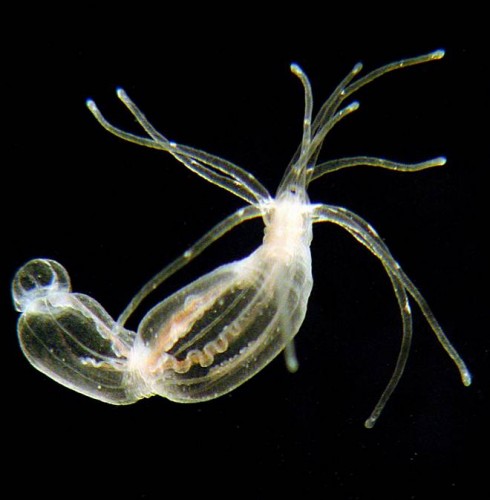The center, which is shared by the Hebrew University, Bar-Ilan University and the University of Haifa, will investigate, among other things, the impressive ability of Nematostella to restore body parts in order to promote developments for organ restoration

As part of the plan for the development of scientific and technological infrastructures in the field of marine biology of the Ministry of Science and Technology, a sophisticated national center for genetic engineering of the Nematostella sea lily will be established. For this purpose, Dr. Uri Gat, a developmental biologist from the Hebrew University of Jerusalem, teamed up with coral researcher Dr. Oren Levy from Bar-Ilan University and Dr. Tamar Lotan from the University of Haifa, who studies sea lilies and jellyfish.
Why Nematostella? Nematostella is a sea anemone that belongs to a large group of animals called stingers because they all have stinging cells on top of their hunting arms and with these they are able to devour creatures larger than themselves and become a nuisance and even a danger to bathers in the sea. The crayfish are among the earliest animals on the evolution scale and next to Nematostella the jellyfish and corals are also members of the group.
To study a certain animal, you have to find a "model animal" that can be easily raised in laboratory conditions and study all stages of its life. For this purpose, scientists use small animals that grow and reproduce quickly and whose genes are known, such as fruit flies and mice. The nematostella is the first animal in the group of tsorbans that can be used as a model animal.
According to Dr. Uri Gat from the Alexander Silverman Institute of Life Sciences at the Hebrew University, who participates in the establishment of the new and first center that introduced the system to Israel, although the Nemotetala is a simple and very primitive animal, it is rich in genes, many of which are shared by humans and constitute the primitive version of genes our equivalents.
"Hematostella makes it possible for the first time to find the 'founding' genes for important developmental pathways common to all animals and thus to understand what their initial role was during evolution, something that can shed light on the function and importance of these genes in humans," explains Dr. Gat. "For example, one of the first nervous systems in the animal world developed in the group of shrivels, so if we learn how it was created and how it functions, we can get new tools for research and understanding of the human nervous system."
Nematostella has a rare ability to regenerate large damaged body parts, unlike humans. According to Gat, the study of nematostella will make it possible to understand in depth injury repair processes which are the similar processes in humans, thus contributing in the future to the development of new drugs that speed up wound healing and to the creation of innovative developments for the rehabilitation of damaged organs. According to Dr. Tamar Lotan from the Charni School of Marine Sciences at the University of Haifa, the center will investigate the mechanism of action of the nematostella's stinging cells in order to examine ways to avoid being harmed by relatives of the sea lilies, the jellyfish. Also, at the University of Haifa, the possibility of using nematodes as living sensors to warn of seawater pollution is already being tested.
The Nematostella Research Center will be established with funding from the Ministry of Science and Technology at Bar Ilan University due to its central geographic location between the three institutions and will be the first inter-university and national center of its kind in the world. Dr. Oren Levy, a marine biologist and director of a laboratory for the study of biological clocks in corals, believes that cooperation between different academic bodies is a pool of resources and shares in research in the field "in many places in the world there are such centers where the research scientist can be offered equipment, space and knowledge that marches science forward. We are proud to be part of such a first party in Israel. Undoubtedly, in this way we can promote science in Israel."
